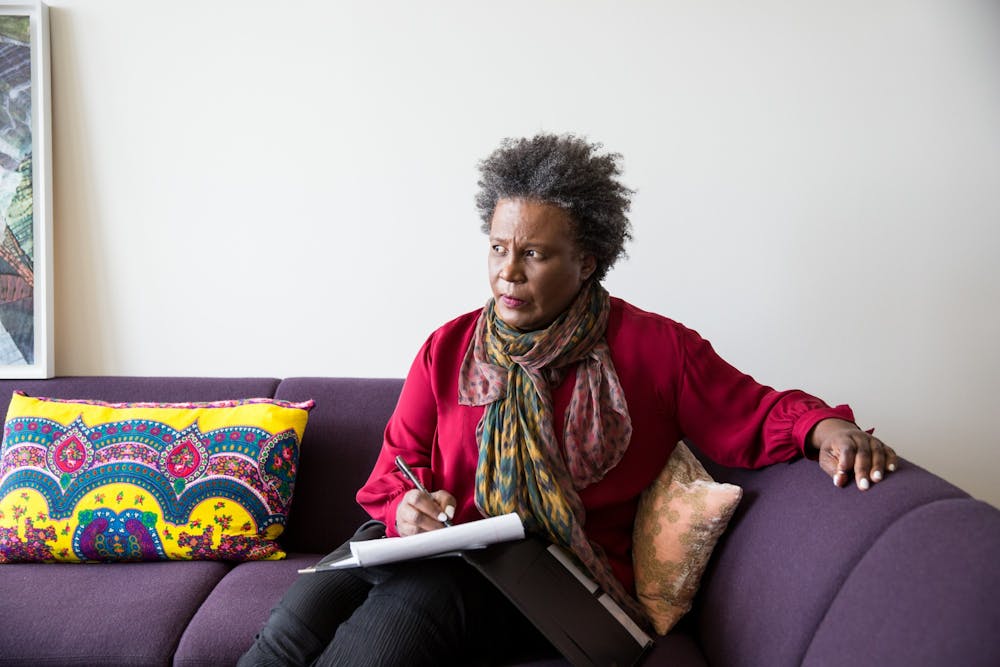Claudia Rankine spoke about instances of modern racism covered in her book at the University of Richmond's Weinstein-Rosenthal Forum on Sept. 29.
Rankine wrote her collection of essays, “Citizen,” after she heard several stories of people of color’s experiences with prejudice in America. Her book covers “a society that structurally works for some, and not for others,” she said.
The presentation took place in Camp Concert Hall as part of the 34th annual Weinstein-Rosenthal Forum on Faith, Ethics and Global Society. Rankine hoped to show how
“Whatever is happening [to people of color] was happening, and is still happening,” Rankine said in regard to the message shared in the essays, which were paired with strong art and imagery, that were featured in “Citizen.”
Rankine told stories of her own experiences and those of others. Ranging from microaggressions to violence, she described these encounters with racism as being “like living in an environment where you never know...if something will impact you.”
Following her presentation, Rankine opened the floor to questions, at which point a student asked about Richmond-specific struggles. The question concerned the racial reckoning on campus, asking Rankine to give her advice for how to address the situation.
“You can get tired, but you can’t get cynical,” Rankine told the student.
Many of the attending students found themselves personally connected to the speaker. First-year student Maria Zambrano Davila said that they had found the presentation to be validating for people of color and informative in a way that was different from a class discussion.
A similar sentiment was expressed by another student, Lauren Yim, who said, “As an Asian-American reading Citizen, this book made me feel seen.”
Several first-year students were encouraged to attend the event with their classes.
Gavin March, a first-year, found the lecture relatable to the course Classical Political Thought and the material that had been covered.
In a time where racial issues prevail in the news, both on a university and national level, Rankine stressed that education is important. She outlined the turn against critical race theory as erasure of American history.
Enjoy what you're reading?
Signup for our newsletter
“The suppression of critical race theory is the suppression of information around this country that shows its true investment in white nationalism,” she said.
Rankine wrapped up the presentation by describing her difficulty constructing a conclusion to Citizen. When faced with creating the ending to a book about the struggles that people of color face, Rankine came to one conclusion: “I don’t know how to end what doesn’t have an ending.”
Contact writer Bella Stevens at bella.stevens@richmond.edu.
Support independent student media
You can make a tax-deductible donation by clicking the button below, which takes you to our secure PayPal account. The page is set up to receive contributions in whatever amount you designate. We look forward to using the money we raise to further our mission of providing honest and accurate information to students, faculty, staff, alumni and others in the general public.
Donate Now



